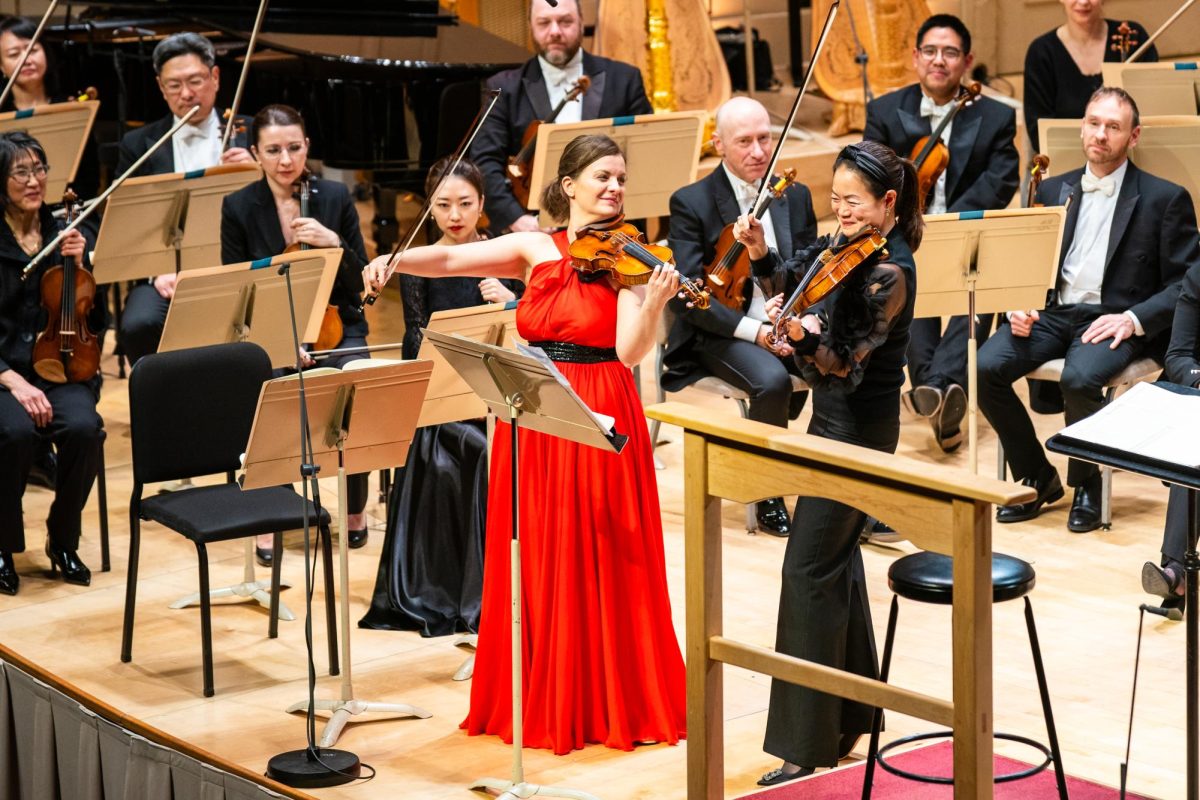Pristine classical music seeped into the brisk air through the window creases of Symphony Hall last weekend, as the Boston Symphony Orchestra performed from repertoire like Igor Stravinsky’s 1919 suite of “The Firebird,” a Russian ballet, among other works.
Beginning on Feb. 6 and concluding on Feb. 8, the performances marked French conductor Nathalie Stutzmann’s conducting debut at the Boston Symphony Orchestra. In the past, she first served as a vocal soloist during a BSO performance of Maurice Ravel’s “L’enfant et les sortilèges” in 1996. She continued to sing at Symphony Hall over the years in numerous performances of Bach, Mahler, Debussy, and de Falla.
Despite her accomplished career as a classical singer, with her impressive contralto—a female singing voice with a low vocal range—allowing her to rise to success quickly, Stutzmann had another dream: conducting. However, she found it difficult to integrate into a male-dominated practice.
“I tried to enter the conductor class when I was a teenager,” she recalled during an interview between rehearsals at the Metropolitan Opera, where Stutzmann conducted a new production of Mozart’s “Don Giovanni” in 2023. “It was not forbidden for a girl, but the teacher was very misogynistic, so I was never able to conduct the orchestra.”
Now serving as the Music Director of the Atlanta Symphony Orchestra, Stutzmann took the stage at Boston‚Äôs Symphony Hall to conduct with firmness, poise, and grace that shifted from fierce to gentle in a flash.¬Ý
‚ÄúThere are two types of artists: Those who strive their whole life to show what they’re doing is difficult, then there are those who spend their life trying to make people believe it is not difficult,‚Äù said Stutzmann in an interview with ForumOp√©ra. The latter group, clarified Stutzmann, ‚Äúis the category I belong to.‚Äù
Now arriving in Boston as a coveted conductor, the Boston Symphony Orchestra treated audiences with performances of three famous compositions from varying circumstances: Beethoven‚Äôs ‚ÄúViolin Concerto,‚Äù is a German composition; Ravel‚Äôs ‚ÄúAlborada del gracioso” is a French piece with Spanish influences; and Stravinsky‚Äôs 1919 suite, ‚ÄúThe Firebird,‚Äù is compiled from the work written for his Russian ballet of the same name.
Concertgoers were given a pleasant surprise in the form of an encore duet from featured violin soloist Veronika Eberle and first-chair violinist Elita Kang. The two violinists played through a piece from Béla Bartók, a Hungarian composer.

Jim McHugh, an audience member from Charlestown, was in the crowd Thursday night and was especially moved by the performance, commenting on Stutzmann’s skill: “I loved it. I thought it was jaw-dropping. The length of time she was up there performing that piece, and the complexity of it, and the way she pulled it all off musically, and the emotion she obviously was putting into it. It was a spellbinding performance. I just loved it.”
Jack Silver, a writing, literature, and publishing sophomore at Emerson was also present Thursday night, and took a liking to Stravinsky’s work. “‘The Firebird’ was by far my favorite of the pieces performed,” said Silver. “It felt both modern and timeless, and I was constantly enthralled listening to it. I knew very little about Stravinsky before attending, but now consider myself a fan.”